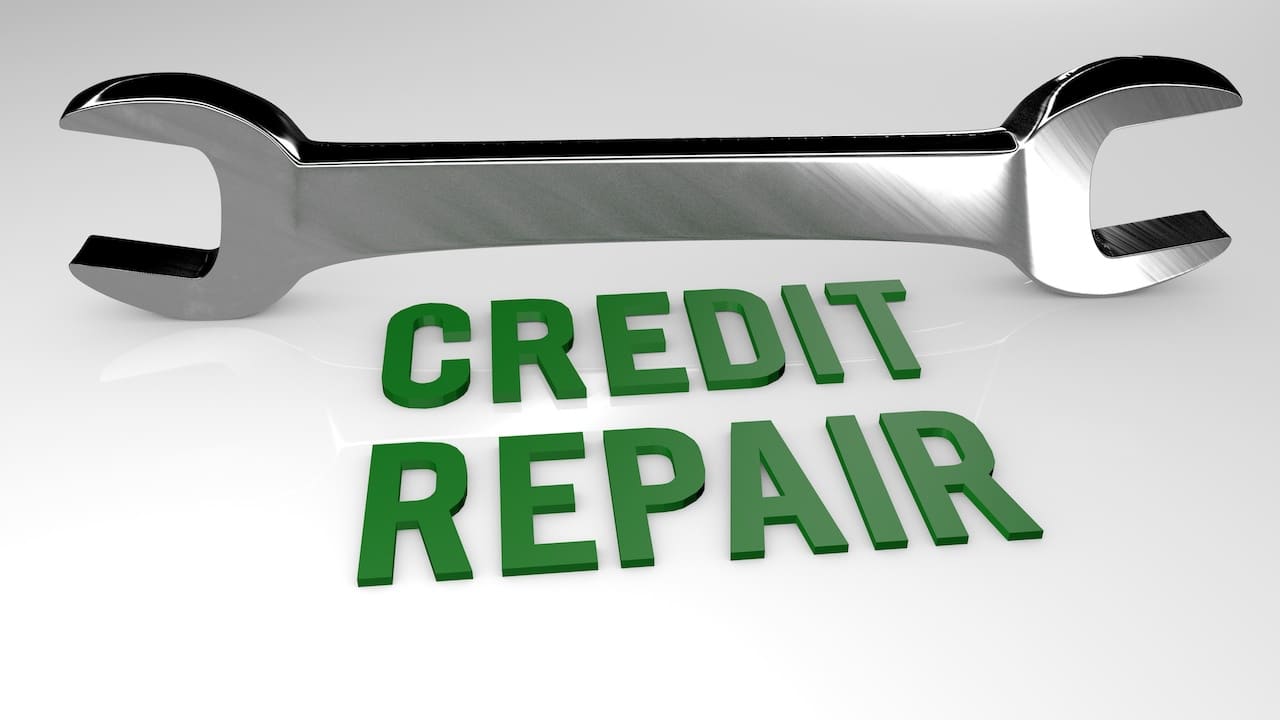Credit Sesame on credit repair versus credit building and the differences between them.
Credit repair and credit building are important components of managing your credit and improving your creditworthiness.
What is credit repair?
Credit repair involves fixing errors or inaccuracies on your credit report that negatively impact your credit score. This can include removing late payments, collections, or other negative items that are incorrectly reported. Credit repair services can help you dispute inaccurate information on your credit reports and negotiate with creditors to remove negative items.
Is credit repair legal?
Credit repair is legal. The Fair Credit Reporting Act (FCRA) grants you protection from the accidental or deliberate insertion of unfair, inaccurate or unprovable information in your credit reports. You have the right to contest it yourself or through a paid credit repair service.
What’s an “unfair” entry? Items that are true but reported in a way that’s excessive are unfair. Suppose you had an account go to collection. And then the debt was sold and resold to debt buyers. If each debt buyer reports the same collection again and again, the extra entries are “unfair” items. You can remove them. Similarly, creditors that report an item they can’t prove have to delete it from your credit report.
How do you repair your own credit?
Credit repair can be time-consuming but you can do it yourself. Here are the steps you’d take:
- Request your credit reports from all three major reporting agencies, Equifax, Experian and TransUnion. You can get them for free at the federal government’s site annualcreditreport.com.
- Review your reports for inaccurate or unfair (duplicate) entries. They can include incorrect personal information, missing or late payments, accounts you closed showing closed by the issuer, fraudulent activity, accounts showing a balance after being paid off, and more.
- Contact each bureau reporting an inaccurate entry and dispute it. It’s probably easiest through the Experian, Equifax or TransUnion websites but you can also call or do it by mail. Complete the form and supply anything that proves your case like pictures of canceled checks, letters or other paperwork.
- By law, the credit bureaus must investigate your claim within 30 days of receiving it. They also have to notify the company reporting the information within five days.
- Recheck your credit reports in 30 days to make sure the disputed items have not reappeared.
- Monitor your credit reports periodically to make sure the bad information stays off. Sometimes, companies that report false information neglect to update their records. It can go right back on your credit reports the next time they report. Monitoring your credit reports helps you head this off.
How to remove accurate entries from your credit report
While most credit repair involves disputing inaccurate information, you can sometimes eliminate accurate entries. That process involves contacting the creditor and requesting the deletion of the entry.
If you pay your bill late (and remember that for credit reporting purposes, “late” means over 30 days past due) but you have a good history with that creditor, contact them and ask them to report the payment as on time. You can call customer service or send a goodwill letter. The key is to apologize, explain and promise to pay on time in the future.
Another way to “repair” a derogatory entry like a collection account or past due account is the “pay for delete.” If you’re dealing with a collection agency, collection department or debt buyer, try to negotiate this. For instance, offer to pay what you owe in full in exchange for deleting the collection from your credit file. Not every creditor does this, but many are willing to negotiate.
What do credit repair companies do?
Legitimate credit repair companies analyze your credit report and devise a plan to help you improve your credit. They may contact credit bureaus and creditors, dispute inaccurate or unfair entries and send information and documents to prove your case. Typically, they charge a monthly fee for their services, but you don’t pay upfront. They will communicate with you about the progress of your repair.
Credit repair companies may counsel you on other ways to improve your score like paying down debt or opening “second chance” accounts.
One special type of credit repair is the “rapid rescore.” Rapid rescoring is used by mortgage lenders to quickly wipe out inaccurate entries on credit reports so their clients can be approved for home loans. They also use rapid rescoring to generate a new score if you pay down or pay off credit balances. To rescore your credit report, the mortgage lender pays the credit bureaus to expedite an update to your credit report and score. Only mortgage lenders can do this for you — consumers can’t access rapid rescoring directly.
How to avoid credit repair scams
Not all credit repair businesses operate legally under the Credit Repair Organizations Act (CROA). However, scammers are pretty easy to spot if you know how.
- Scammy companies ask you to lie or fudge information or tell you not to contact credit bureaus yourself. It’s illegal to say that your identity was stolen if it wasn’t.
- Bad credit repair companies dispute information they know to be accurate. However, even if it is temporarily removed, accurately reported credit damage will come back — probably in the next reporting cycle. And if the credit bureaus believe the disputes are “frivolous,” they don’t even have to investigate the dispute and won’t remove the item.
- Con artists may recommend applying for an Employer Identification Number (EIN) or a credit privacy number (CPN) to mislead future creditors. That’s also illegal.
- Scam repair firms do not disclose your rights. You have the right to review your contract before signing, and repair firms should also tell you that you can repair your credit yourself. Bad actors might leave important information, like the cost of services, off of your contract.
Credit repair, whether it’s a DIY effort or a professional provider, can help you get rid of bad information or in some cases delete past mistakes. Another solution, credit building, can help you establish or reestablish positive credit history.
What is credit building?
Credit building involves establishing a positive credit history by using credit responsibly, making timely payments, and keeping your credit card balances low. This can include applying for new credit accounts or loans, using them responsibly, and paying them on time. Building a strong credit history can help you qualify for credit in the future with better terms and lower interest rates.
Credit building products can include credit report analysis, rent reporters, credit builder loans, secured or second chance credit cards and credit building apps. Score-improving tactics are designed to decrease your credit utilization, improve your credit mix and generate good repayment history.
Credit building products
Credit building loans and cards carry less risk to lenders, so they are more willing to lend to people with spotty credit histories. They usually involve depositing money as security in case you don’t repay the loan. Other products like rent reporting services can help you add positive credit history to your credit report. Some apps help you turn debit card purchases into credit-building opportunities, and credit building sites analyze your credit file and offer tips for improving your score.
Credit builder loans
The typical credit builder loan is more like a savings plan. You and your lender determine a loan amount (most ranging from $300 to $1,000) and make payments for six to 24 months. Your payments include interest. Ensure your lender will report these payments to all three major credit bureaus and be religious about getting the payments in on time. You get access to the money at the end of your loan term.
Secured credit cards
Secured credit cards look and function like traditional credit cards. However, you must put up a deposit that the lender can keep if you don’t pay your bill. This deposit may be equal to your card limit, or it may be less. Often, after months of on-time payment, the issuer could reward you. This reward might be the return of your deposit or a credit line increase. When shopping for secured cards, make sure the fees are reasonable and that they report your payments to all major credit bureaus.
Rent reporting services
If you rent and your landlord reports your payments to credit bureaus, you’re already building payment history. If not, and you always pay your rent on time, you can add rent payments to your credit report by enrolling in a rent reporting service. Reporting on-time rental history adds positive data to your credit report for future lenders to see. In addition, it can increase your credit score, depending on your other information and on which credit scoring model your creditors use. VantageScores 3 and 4 consider rental history and so does FICO 9.
Credit building analysis and monitoring
Credit Sesame analyzes your credit report and offers tips for increasing your score and actions you can take to improve your financial wellness. Checking your credit reports and score frequently or enrolling in credit monitoring services helps boost your credit score in several ways. First, the feedback tells you if your credit management is helping or harming your credit score. Second, you can flag credit reporting errors and fix them promptly. And third, you can spot inquiries or new accounts not authorized by you and keep identity thieves from defrauding you.
Credit building apps
Sesame Cash and Credit Sesame Credit Builder work together to help you manage your spending, enjoy early access to your paycheck and get cash back on debit card purchases. Sesame Cash is a debit card that you can add cash to and use for purchases.
When you turn on Credit Sesame Credit Builder, you set aside part of your debit card balance as a security deposit for a virtual line of credit. Use your debit card and Credit Sesame does the rest behind the scenes. Credit Sesame reports your balance and payments to credit bureaus the same way a credit card issuer would. As your credit score climbs, you’ll gain access to more credit offers.
Sesame Cash and Credit Sesame Credit Builder charge no interest or fees and can help you quickly improve your credit profile and score. There is no credit check and the app (Android or iOS) is free.
If you’re trying to build credit from scratch, credit building tools can help you get there a lot faster. If you’re trying to rebuild credit after some damage, a combination of credit repair and credit building can help you recover sooner and avoid future credit problems.
Last word
Credit building involves establishing a positive credit history over time, while credit repair involves fixing errors or inaccuracies on an individual’s credit report that negatively impact their credit score. Both processes are important for improving creditworthiness and financial stability.
If you enjoyed Credit repair versus credit building, you may be interested in,
Disclaimer: The article and information provided here is for informational purposes only and is not intended as a substitute for professional advice.




















